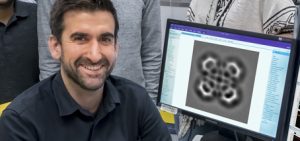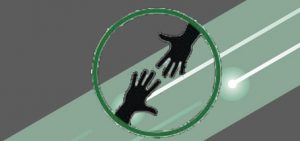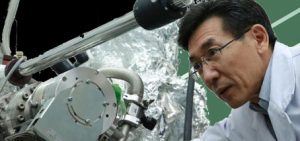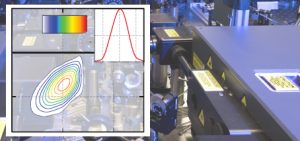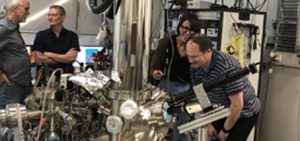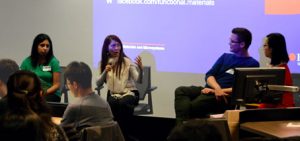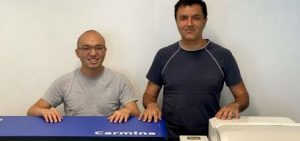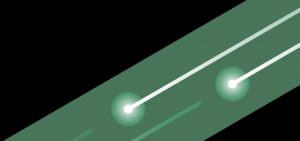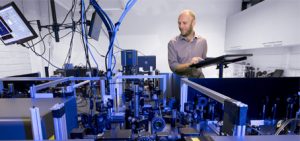FLEET News
Women are under-represented in science, particularly in physics. In this regard FLEET is no exception. We are taking steps to improve this. Research confirms that diverse teams do better science. We know that by improving our performance with respect to gender equity and diversity, we are not only doing what’s fair, we will also improve the effectiveness of our research …
Automated Scanning Probe Microscopy (SPM) controlled by artificial intelligence First demonstration of fully autonomous, long-term SPM operation An Australian-German collaboration has demonstrated fully-autonomous SPM operation, applying artificial intelligence and deep learning to remove the need for constant human supervision. The new system, dubbed DeepSPM, bridges the gap between nanoscience, automation and artificial intelligence (AI), and firmly establishes the use of …
—by Cecilia Bloise, Node Coordinator, UNSW Materials Australia members were hosted on a tour of FLEET’s labs at UNSW in February. FLEET is an ARC Centre of Excellence researching novel materials for ultra-low energy electronics. FLEET represents over a hundred physicists and materials scientists working to develop a new generation of electronics to address the challenge of energy used in information …
FLEET’s live-streamed seminars help share research results across the Centre, keeping members informed on latest FLEET research, and enhancing inter-node collaboration. Early-career researchers presenting the seminars gain valuable presentation experience, and benefit from immediate feedback on their research from diverse Centre members. In 2019, FLEET-wide live-streamed seminars were presented by: Dr Dan Sando (UNSW) Dr Jackson Smith (RMIT) Dr Maciej …
FLEET focuses significant efforts on science outreach, with the aim of: Increasing the participation of students in science and physics Increasing understanding of and passion for science in the general public Improving the outreach skills of FLEET members Supporting the public discussion of FLEET-specific science. FLEET shares the responsibility to increase the participation of students in science, and to increase …
Congratulations to Tsinghua Vice-President, and FLEET partner investigator, Prof Qi-kun Xue, one of the recipients of the 2020 Fritz London Prize, which recognises scientists making outstanding contributions in the field of low-temperature physics. Within FLEET, Prof Xue coordinates the collaboration between Tsinghua and FLEET, including a significant exchange program of student and postdoctoral researchers. He also provides critical insights in …
FLEET supported significant international and Australian conferences in 2019, which was bookended by major, FLEET-hosted conferences at the end of 2018 (ICON2D-Mat) and beginning of 2020 (ICSCE). With new partner organisation the MacDiarmid Institute (NZ), FLEET co-organised the Conference on Signature of Topology in Condensed Matter in Italy, working closely with the International Centre for Theoretical Physics. Almost 120 researchers …
Ultrafast, multidimensional spectroscopy unlocks macroscopic-scale effects of quantum electronic correlations. Researchers found that low-energy and high energy states are correlated in a layered, superconducting material LSCO (lanthanum, strontium, copper, oxygen). Exciting the material with an ultrafast (<100fs), beam of near-infrared light produces coherent excitations lasting a surprisingly ‘long’ time of around 500 femtoseconds, originating from a quantum superposition of excited …
First recipients of FLEET ECR Grants Grants funding research trips to Italy, Singapore, US FLEET’s ECR Grants fund travel for ECRs and PhDs, developing networks and professional and scientific skills, including supporting travel to research facilities to learn new techniques, form new collaborations, or complete training. Of the 1st round’s eight applications, the Education & Training Committee decided to fund three: …
Three FLEET representatives at this month’s Catalysing Gender Equity 2020 in Adelaide. “For me, the conference highlighted how many great initiatives are already in action, improving gender equity around Australia,” said FLEET Equity Chair Jeff Davis. “However, there is still a lot of work to do and everyone can and needs to help change the culture.” Attending from FLEET were: …
Simon Granville, a Principal Investigator of the MacDiarmid Institute, visited FLEET collaborators at RMIT (Lan Wang and Torben Daeneke), Monash (Michael Fuhrer, Mark Edmonds, Julie Karel), UNSW (Jan Seidel’s group) and the University of Wollongong (Xiaolin Wang and David Cortie) in February to plan upcoming exchanges as part of several FLEET-MacDiarmid research collaborations funded in the 1st round of reciprocal …
Jobs in many of the fastest-growing industries require science, technology, engineering and mathematics (STEM) skilled professionals. The Young Researchers Forum, aka YouRforum was created by FLEET COO Dr Tich-Lam Nguyen (then at the Monash Centre for Atomically Thin Materials) to provide opportunities for young STEM researchers to network, discuss research ideas and practice their professional skills. The program‘s ‘Got PhD, …
Phonon-polaritons in layered crystals have peculiar properties where they occur at the boundary between materials. In a new study led from UNSW, phonon-polaritons were studied in thin-layer hexagonal boron nitride (hBN) by combined scattering-type scanning near-field optical microscopy (s-SNOM) and Fourier transform infrared (FTIR) spectroscopy. Prof Kourosh Kalantar-zadeh’s multidisciplinary group at UNSW combined scattering-SNOM single-wavelength imaging and broadband scattering IR …
Improving the situation of women in physics calls for complex cultural challenges. We must be sensitive to potential challenges of resistance and backlash. Following the 2018 survey, FLEET conducted a second comprehensive cultural survey of its members to determine attitudes to gender equity. An impressive 53% of members responded, revealing that: Over 80% found their workplace inclusive and respectful 90% …
A mini-symposium on ultrafast laser spectroscopy last week brought together the ultrafast laser spectroscopy community in Australia and New Zealand, showcasing local ultrafast laser spectroscopy research and capabilities. Exciton Science and FLEET co-sponsored the Ultrafast Laser Spectroscopy Mini-Symposium at Swinburne, which saw 45 researchers attending from 12 different unis/orgs. At FLEET, ultrafast spectroscopy is used to help understand the microscopic …


